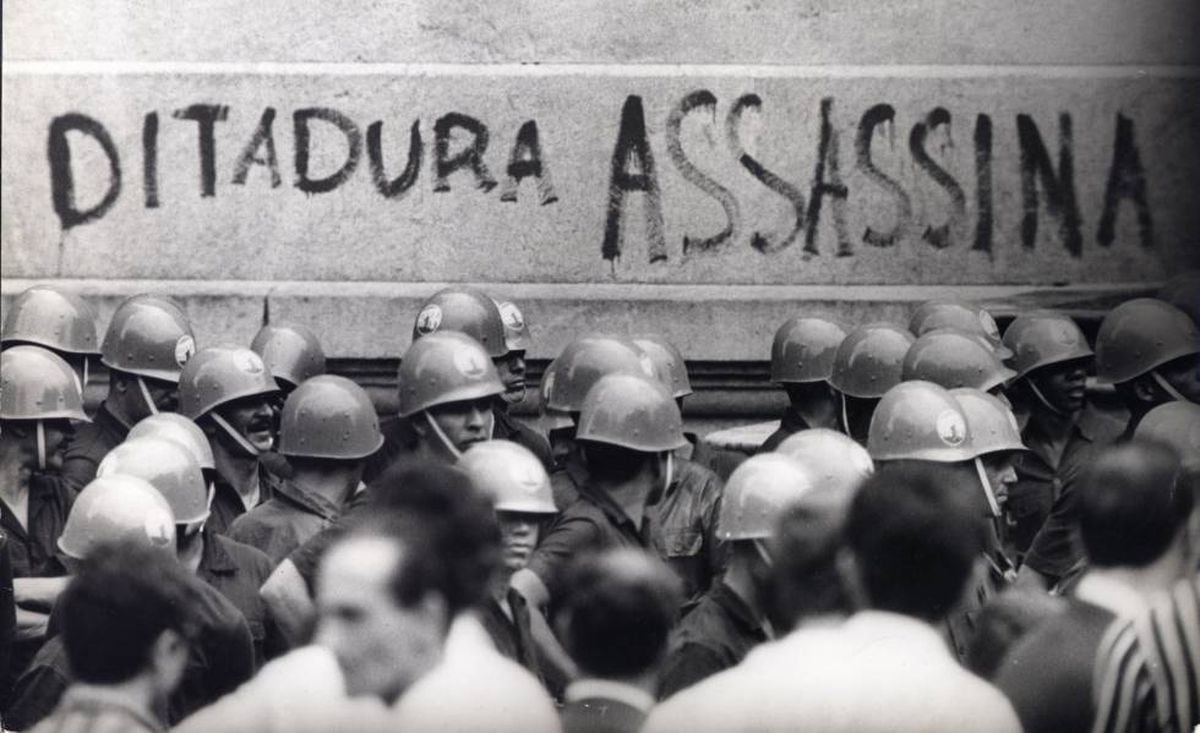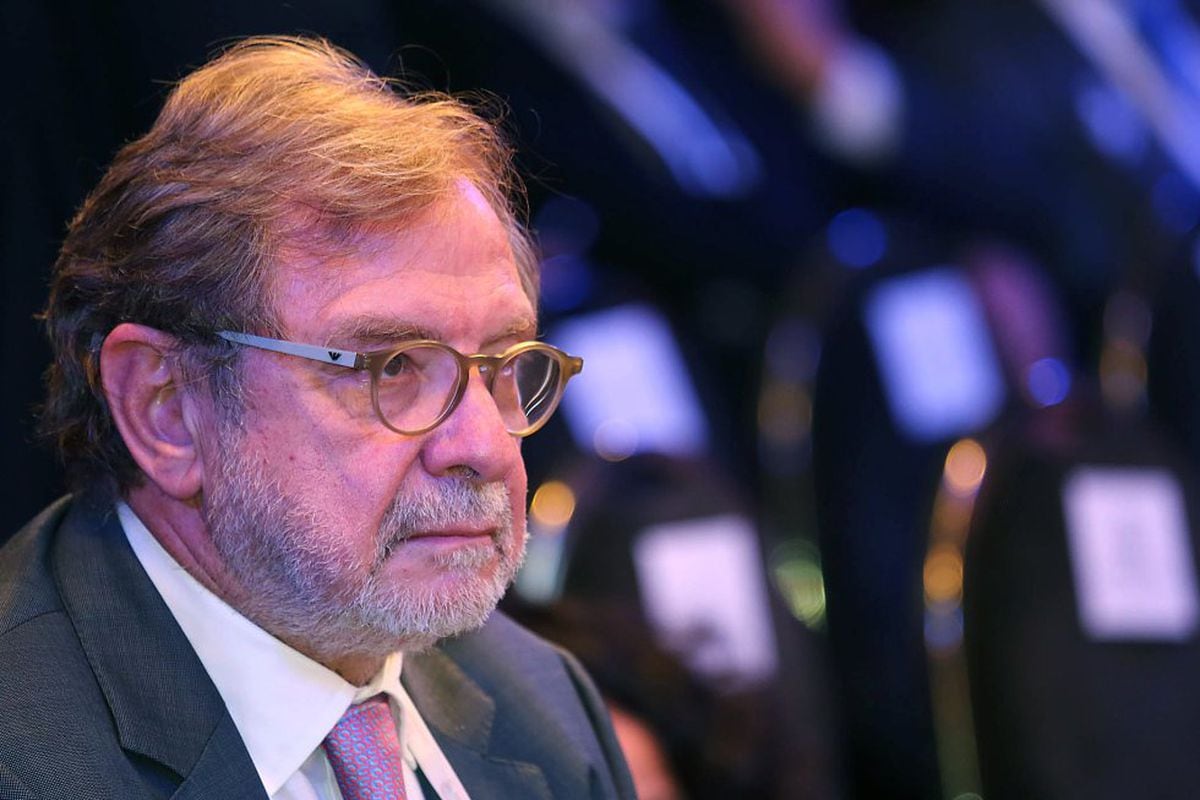Successful with an injunction against the Holocaust settlement: doctor Kristina Hänel
Photo: Stephan Wallocha / imago images / epdWe live in a dictatorship. And abortion is as bad as the Holocaust. At least this is the opinion spread by some excited people on social networks and an anti-abortion convicted on Monday.
Two striking claims that are dealt with differently: So that the radical forgetful of history no longer draws the comparison in relation to the work of the gynecologist Kristina Hänel, he was sentenced in Hamburg to a compensation payment of 6,000 euros. A court in Germany had to enforce a penalty that someone no longer equated an abortion with the greatest genocide in history.
The sentence "We live in a dictatorship" can of course be written anywhere, because we do not live in a dictatorship. Accordingly, it can be read frequently, for example after the ban on the planned rally in Berlin against the measures to contain the pandemic, for which people who have lost their conspiracies, new right-wing or naive mask refusers and right-wing extremists wanted to meet.
What the democracy dogmatist thinks
The endorsement of the ban expressed by Interior Senator Andreas Geisel in the press release of the Senate Administration, which should not be confused with the legally more relevant justification in the order, is quite remarkable. It contains two elements: that of security and that of politics.
Geisel explains: "We are still in the middle of the pandemic with increasing numbers of infections. You cannot deny that. We must therefore weigh up between the fundamental right of freedom of assembly and that of the integrity of life. We have chosen life." And he goes on to say: "I am not prepared to accept a second time that Berlin is being abused as a stage for corona deniers, Reich citizens and right-wing extremists."
While in the case of security the justification is comprehensible and legally comprehensible - the security of people is at risk because it can be assumed that the participants protesting against the measures to contain the pandemic will knowingly and willingly not adhere to them - this is Political classification of the Senator of the Interior more ambiguous.
Samira El Ouassil Right Arrow
Born in Munich in 1984, is an actress and author. In 2016 her book "The 100 Most Important Things" (with Timon Kaleyta and Martin Schlesinger) was published by Hatje Cantz Verlag. In 2009 she was the candidate for chancellor of the PARTY, which at that time was not admitted to the federal election. She was recently awarded the Bert Donnepp Prize for media journalism for her media critical column "Wochenschau" (uebermedien.de).
The private person in me does not think the ban is a shame, and as a citizen I am relieved to welcome the cancellation of an event at which right-wing extremists wanted to spread anti-democratic, anti-Semitic and neo-Nazi content. But as a dogmatist of democracy, it struck me that a group of people cannot exercise their basic right to assembly - even if I do not share their opinion.
As has so often happened in recent months, we have a situation in which various fundamental rights and duties compete, which are equally important and must be weighed up: freedom of assembly, the right to commemoration, the right to physical integrity, the duty to engage in anti-democratic acts to act if they violate the fundamental rights of others or democracy; and this duty includes the fight against forgetting, racism, anti-Semitism and right-wing extremism.
A ban on a demonstration like the one in Berlin is not to be seen as a restriction of fundamental rights, because it occurs after weighing up different fundamental rights; it is about the principle of "practical concordance", as lawyers say. And the fact that these considerations can be different depending on the federal state or must depending on the risk does not make things clearer.
What we need in such considerations is the ability to withstand ambivalences, simultaneities of supposedly contradicting statements that are equally justified in being thought. What we don't need are: dictatorship comparisons.
Blunt abbreviation
The rhetoric has its own semi-serious law for this escalation: Godwin's law. It says that the longer a discussion progresses, the greater the likelihood of a Nazi settlement. This regularity does not only apply to the current debates about the mask requirement, where mask refusers with a yellow star on their lapels publicly assert their persecution or believe they are in a dictatorship after the prohibition of a rally, which incidentally can be legally challenged.
Unfortunately, Nazi comparisons can be found in many fields of discourse: Feminists are called Feminazis; Sustainability discussions are becoming an ecological dictatorship; the cancellation of an artistic performance by an organizer becomes censorship. And these are not satirical contributions or polemical points that are simply historically brutal. No - it is about statements really meant that the developments in Germany now and today are as bad as those in 1933.
Why is there a lack of semantic sensitivity, historical conscience and proportionality in this country of all places? How can one seriously come to the conclusion that anything in our modern world can be brought close to National Socialism by analogy, into its terrible uniqueness and incomparability?
History has been studying the urge to use Nazi analogies for some time. The historian Gavriel David Rosenfeld describes how references to Hitler emerged in the post-war period: Hitler's crimes were so indescribably bad that no comparisons could be found for him - and he himself was ultimately stylized as an archetype of evil. It became an inflationary comparison for everything that followed, Hitler replaced transcendental evil.
The blunt abbreviation of the Nazi analogy, which people forget about history today, is a sign that they can only think of the political in terms of reference to an evil one. But that paralyzes the intellectual and ethical debates. And it abuses history and the victims if it doesn't mock them at all.
Because an abortion is not a Holocaust. And a demo ban is not a dictatorship.
Icon: The mirror

/cloudfront-eu-central-1.images.arcpublishing.com/prisa/TBUCSMISIVAOPJ6ZOCNCHG6WHQ.jpg)





/cloudfront-eu-central-1.images.arcpublishing.com/prisa/XTCY6IKYNBDFICDL7Y5VEUJQSU.jpg)
